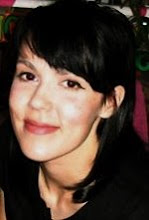

Yesterday, a bird alighted on the window ledge, as close as my own elbow, and whirred there like a small blue motor. On mount Kilimanjaro, the white necked ravens followed us from dripping, hissing rainforest up to the open airless stretches of rock and boulder. It was always amazing to be so near them, and to hear the slow whoosh-whoosh-whoosh of their wings as they gathered enough strength for lift-off. Despite the proximity to birds, and despite the flowers that are so incredibly saturated with light and colour, this place is no paradise. Last night, for example, I felt pinned under a heavy blanket of smoke from the garbage burning, and under the ever present shouting of a maniacal-sounding street preacher with a hoarse voice and a bad microphone. All the vistas and lives I had witnessed in the past week suddenly seemed a weight on my forehead, my mind so crowded with images of dry throats and dust-covered feet that I tried in vain to retreat inside some cool inner room painted in soothing monochromatic tones.
In the afternoon, Jean took a few of us to see a few tourist resorts, to see how the other half experiences Africa. What we saw was an astounding example of contrast. When we first arrived in Karatu town, there was an announcement by loudspeaker that there would be no water for 10 days. Yet, in the resorts, we saw the most beautiful swimming pools filled with pristine, clear water. In one resort, you could rent your own Masai warrior to show you how to roast coffee. Jean told us that many, if not most tourists experience Africa this way - and to them, it is paradise. They spend the day in the national park on Safari, and then return to the hotel compound for a cool shower, a cocktail or two, and a wonderful meal. Sadly, all the tourist dollars have had a 0% effect on reducing poverty in the area.


